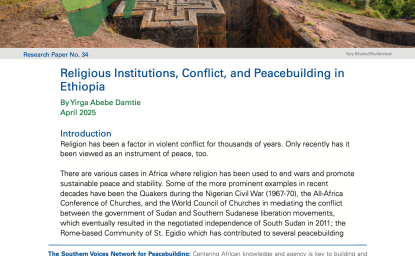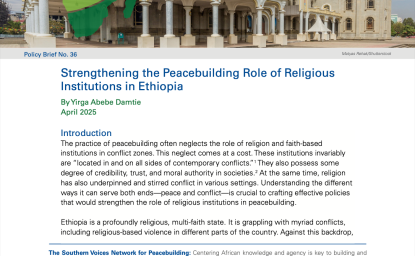T
he Revitalized Transitional Government of National Unity recently announced that they are postponing South Sudan’s elections, originally scheduled for December 2024. The new date for the elections is now set for 2026, marking a two-year extension. This decision goes beyond addressing mere logistical challenges; it reflects South Sudan’s commitment to resolving essential issues to ensure a fair and credible electoral process. The delay allows the South Sudanese government to address crucial prerequisites for a successful election, including conducting a comprehensive constitutional review, establishing election laws, and completing a national census. These steps are essential for laying a solid foundation for a stable and democratic electoral process.
While some have expressed disappointment at the delayed elections, the postponement intends to make the election inclusive by incorporating holdout groups involved in the ongoing Tumaini peace talks and others who may want to join the peace process currently being mediated by Kenya. These groups remained outside the 2018 peace agreement, citing concerns over its implementation and inclusivity.
President Salva Kiir Mayardit has emphasized that the Tumaini talks do not replace the existing 2018 peace agreement but instead intend to address and integrate the concerns of the holdout groups within its framework. This approach aims to ensure inclusivity and prevent a cycle of conflict. The reconstituted delegation, led by General Kuol Manyang Juuk, is expected to engage constructively with the holdout groups to expedite the conclusion of the Tumaini peace negotiations, reflecting the government’s dedication to achieving lasting peace in South Sudan.
These processes underpin President Kiir’s promise to guide South Sudan on a path of peace and progress, adhering to his principle of “never taking his people to war again.” The signing of the Revitalized Agreement on the Resolution of the Conflict in the Republic of South Sudan in 2018 has brought relative peace in South Sudan, and that is what the signatories of the agreement are trying to maintain.
In this vein, South Sudan calls on its international partners, especially the Africa Union, the Intergovernmental Authority on Development, and the Troika (Norway, the UK, and the United States), to support its decision, recognizing the postponed elections as a necessary step toward sustainable peace. A free, fair, and inclusive election—conducted only when all conditions are right—offers the best path forward for South Sudan and mitigates the risk of instability that could arise from a premature vote. With adequate support, this move toward a well-prepared election could be a significant milestone in South Sudan’s journey toward long-term peace and democracy.
Author

Africa Program
The Africa Program works to address the most critical issues facing Africa and US-Africa relations, build mutually beneficial US-Africa relations, and enhance knowledge and understanding about Africa in the United States. The Program achieves its mission through in-depth research and analyses, public discussion, working groups, and briefings that bring together policymakers, practitioners, and subject matter experts to analyze and offer practical options for tackling key challenges in Africa and in US-Africa relations. Read more

Explore More
Browse Insights & Analysis
Religious Institutions, Conflict, and Peacebuilding in Ethiopia

Spying on Poachers

